Allergy relief products and aids to stop smoking have really taken off
Two markets are emerging as potential cash cows for grocery  nicotine replacement therapy (NRT) and hayfever and allergy products.
Now licensed GSL, NRT is enjoying market growth of 10.4% year-on-year, and is worth around £16m in grocery. Better still, it is a product category that consumers want to see there; in a recent survey on behalf of GSK's NiQuitin CQ range, 75% of those polled felt that NRT should be available from supermarkets and convenience stores.
The most popular option is the NRT patch. However among gums, the next most popular format, mint gums are fast becoming the most popular flavour. They account for 49% of all gums sold [ACNielsen], compared to 41% for original and 10% for fruit/citrus flavours. Mint was the flavour of choice for the new NiQuitin CQ 2mg and 4mg gums launched in late August.
The news that GSK has applied to switch Beconase hayfever nasal spray to GSL also underpins the emergence of this category in grocery  grocers have increased their share to 15% in a market valued at £9.2m and growing at 33% year-on-year. With 6.6 million adult hayfever sufferers, it is a market few grocers should avoid.
But, where do these new markets leave own label? According to GSK OTC category manager Greg Bertolotti, own label has fallen victim to customers switching into the now cheaper branded products, particularly in painkillers where Information Resources data for the 12 months to August 2002 show own label sales down in grocery from 35.8% to 33.8%.
Tesco own label, however, retains the number two slot, according to TNS, albeit still registering sales half those of Boots' own label OTC medicines.
Tesco is bullish about its own label performance. Daniel Quinn, Tesco's category manager healthcare, says: "RPM has had little impact due to the tremendous value for money Tesco brand offers over other leading brands."
Budgens OTC buyer David Harland says Budgens stays away from own label medicines because it does not have the own label credibility to make a health product work. Harland says it prefers to concentrate on making branded medicines work through store location and a competitive pricing policy.
Budgens believes its locations are ideal for top-up healthcare purchases and company policy is to over-trade on medicines, compared to its 0.6-0.8% share of the national grocery trade.
{{FOCUS ON }}
Two markets are emerging as potential cash cows for grocery  nicotine replacement therapy (NRT) and hayfever and allergy products.
Now licensed GSL, NRT is enjoying market growth of 10.4% year-on-year, and is worth around £16m in grocery. Better still, it is a product category that consumers want to see there; in a recent survey on behalf of GSK's NiQuitin CQ range, 75% of those polled felt that NRT should be available from supermarkets and convenience stores.
The most popular option is the NRT patch. However among gums, the next most popular format, mint gums are fast becoming the most popular flavour. They account for 49% of all gums sold [ACNielsen], compared to 41% for original and 10% for fruit/citrus flavours. Mint was the flavour of choice for the new NiQuitin CQ 2mg and 4mg gums launched in late August.
The news that GSK has applied to switch Beconase hayfever nasal spray to GSL also underpins the emergence of this category in grocery  grocers have increased their share to 15% in a market valued at £9.2m and growing at 33% year-on-year. With 6.6 million adult hayfever sufferers, it is a market few grocers should avoid.
But, where do these new markets leave own label? According to GSK OTC category manager Greg Bertolotti, own label has fallen victim to customers switching into the now cheaper branded products, particularly in painkillers where Information Resources data for the 12 months to August 2002 show own label sales down in grocery from 35.8% to 33.8%.
Tesco own label, however, retains the number two slot, according to TNS, albeit still registering sales half those of Boots' own label OTC medicines.
Tesco is bullish about its own label performance. Daniel Quinn, Tesco's category manager healthcare, says: "RPM has had little impact due to the tremendous value for money Tesco brand offers over other leading brands."
Budgens OTC buyer David Harland says Budgens stays away from own label medicines because it does not have the own label credibility to make a health product work. Harland says it prefers to concentrate on making branded medicines work through store location and a competitive pricing policy.
Budgens believes its locations are ideal for top-up healthcare purchases and company policy is to over-trade on medicines, compared to its 0.6-0.8% share of the national grocery trade.
{{FOCUS ON }}



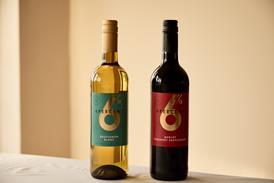



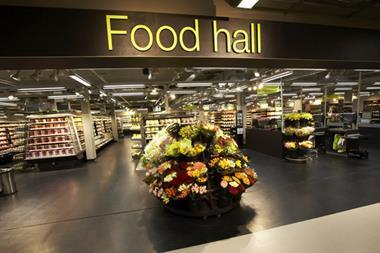


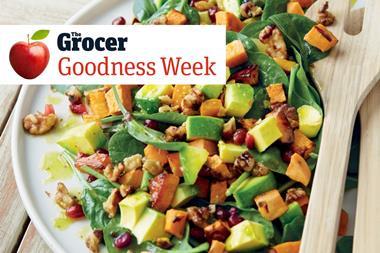




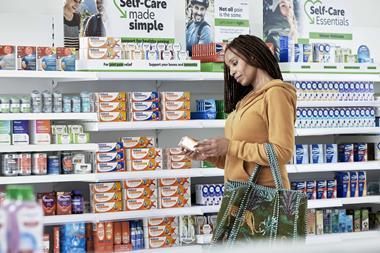
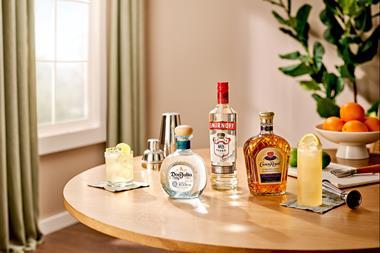
No comments yet